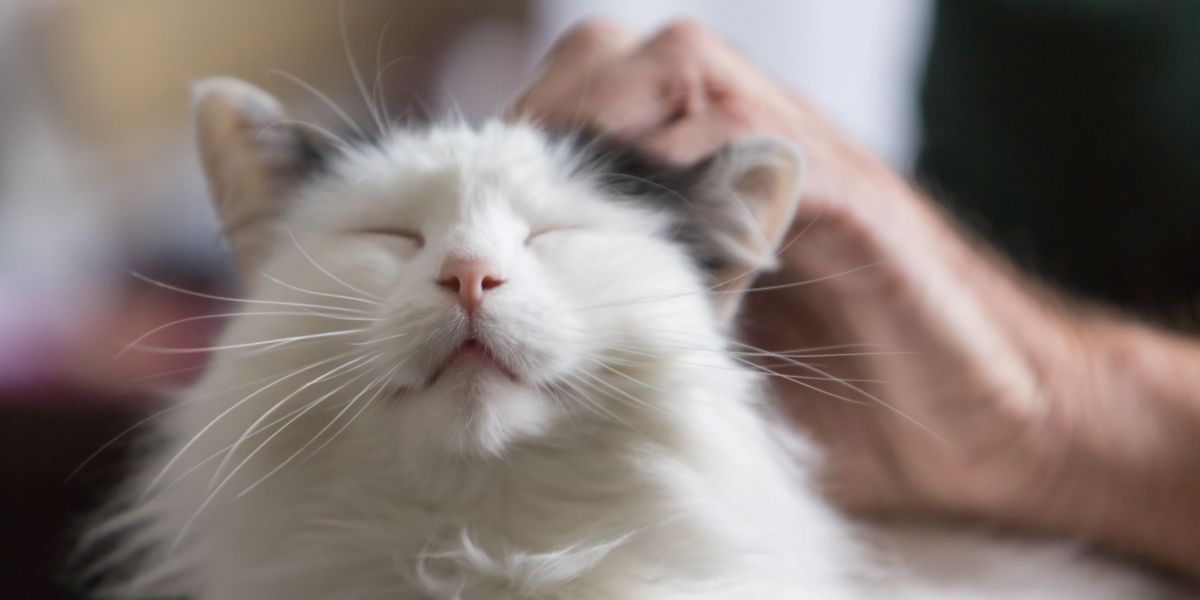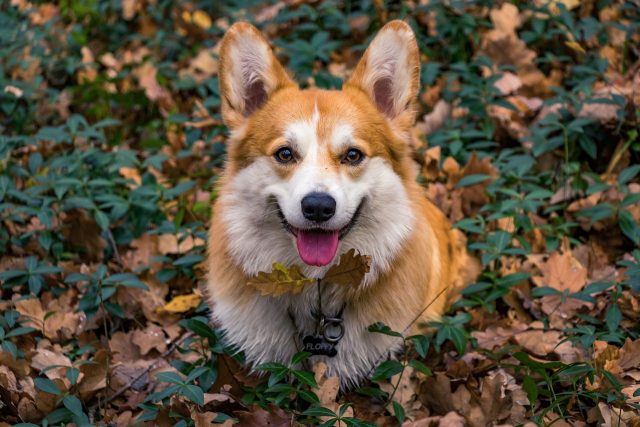
If you live with a feline friend, you’re probably aware of their behavioral traits and funny little ways. Maybe your cat companion enjoys drinking from a dripping tap or practicing hunting by stalking the end of your trouser leg.
Key Takeaways
Cats purr for various reasons, not just when they are content. Purring can indicate happiness, comfort, or even self-soothing during illness or pain
Kittens purr frequently when in the company of their mother, particularly post-feeding, highlighting a sense of security and satisfaction.
Constant purring can sometimes signal that a cat is sick or injured, as purring has been linked to endorphin release which helps with pain and healing
One lovely behavior that most cats do is purring. But what does it mean when your cat purrs? And is it possible for them to purr too much? Let’s find out.
What Is Purring?
Purring is a special noise that cats make that comes from a unique structure near the voice box in their throat (also known as their larynx). The purring sound is formed by the vibration of the tissues, making a quiet (or sometimes quite loud!) rumbling noise during inhalation and exhalation.
Like many cat behaviors, it’s a more complex method of feline communication than it might seem. Interestingly, it’s not just domestic cats who purr, wild cats like cheetahs and tigers do too!
Why Do Cats Purr?
Kittens purr a lot when they’re with the mother cat, especially after a feed.
Many cat owners interpret their cat’s purring as a positive thing. And often it is. But it’s important to remember that purring is a far more complex behavior than you might think. It can be a good thing, but it can also indicate health problems or anxiety.
Here are some of the reasons why your cat might purr:
They’re Content
This is perhaps the most basic explanation for purring, but it’s often the case. Kittens purr a lot when they’re with the mother cat, especially after a feed. Your cat will purr when they’re feeling similarly happy and contented.
If your cat purrs during their favorite pass times, it probably means they’re enjoying life at that moment. Maybe they’re enjoying a fuss, cozied up on your lap, or engaged in playtime with you.
Also Read: 8 Purrfect Games You Can Play With Your Cat
They Feel Safe
Cats like to feel safe and secure. If they feel under threat or vulnerable, they can become anxious. If they’re purring, it can mean they feel safe in their environment. If you’re around, it might mean they trust you or know you’ll protect them.
This might also explain why cats purr while they’re grooming since they will only groom if they feel confident that they are not under threat.
Also Read: Is It Safe To Feed Your Cat A Vegan Diet?
They Like You
Your cat purring while in your company is often a great compliment. It can mean that your cat feels comfortable and secure in your presence and is a sign of affection. If your cat purrs around you a lot, it’s a sign of their strong bond with you, which might make you their favorite person!
Of course, cats don’t just enjoy the company of humans; they might also purr while snuggled up with their best feline buddy or even other family pets if they get on well with them.
Also Read: 5 Ways To Build A Stronger Bond With Your Cat
They’re Reassuring Themselves
On the other hand, a cat purring in a particular situation doesn’t mean they’re comfortable or contented. Sometimes, when a cat is anxious or afraid, they purr as a calming measure to reassure themselves.
They might also purr while they are healing from an injury or recovering from a traumatic experience. Although this might not make much sense to you, it’s your kitty’s way of self-soothing.
They Feel Unwell
Another negative reason for purring is that your cat might feel unwell. Purring, especially when combined with other signs like withdrawing or hiding, eating less, vomiting, or diarrhea, could be a sign of an underlying health issue. It’s just another way that your cat tries to make themselves feel better.
Also Read: Do Cats Know When You’re Sick?
They’re In Pain
If your cat is in pain, they might purr too. They’ll often take themselves away to a quiet spot and may be lethargic and less interactive. You might also notice other signs that they are in pain, like limping, dribbling, crying, or a hunched, tucked-up appearance. If you check them over closely, you might find evidence of a wound, bruising, or bleeding.
Also Read: What Can You Give A Cat For Pain? 6 Vet-Recommended Options
Is It Normal For A Cat To Purr Constantly?
When cats purr a lot, it’s usually a good thing, so constant purring might not be a sign of a problem. For example, if your cat purrs whenever you enter the room or stroke them, they’re probably happy.
In fact, it’s normal for many cats to be very purry and is just a sign that they’re feeling good. However, if there’s a sudden change in the frequency of your cat’s purring, or if there are other signals that they might be unwell or anxious, you should take them to see a vet for a check-up.
The vet will ask questions about their routine and lifestyle and examine them to ensure there are no underlying health issues like pain or stress.
Cat purring is often considered a good thing. However, now you know it can also signify sickness, pain, or anxiety. That doesn’t mean you should worry every time your cat purrs, of course.
But, if your cat’s behavior changes or they seem unwell in any way, it’s worth getting them checked by a vet. That way, you can be sure that your kitty is purring for all the right reasons.
Frequently Asked Questions
Why does my cat not stop purring?
Cats purr for many reasons, but it’s usually a sign that they’re feeling fine! However, it could also mean they’re stressed or in pain. It’s normal for some cats to purr more than others, so if your cat has always purred a lot, it’s probably nothing to worry about.
However, if the pattern of purring changes or your cat doesn’t seem quite right, get an expert opinion from a vet to be on the safe side.
How can you tell if a cat is purring because of pain?
If your cat is purring because they are painful, they might not want to spend time with you. You might also see other signs of pain like fast breathing, pawing at their mouth, limping, or dribbling.
They might also meow more than normal and their body language might suggest that they are in pain. If you suspect your cat might be purring due to pain, speak to your veterinarian for advice.
Why is my cat purring and kneading?
Purring combined with kneading is a behavior that suggests happiness and security. By kneading, your cat is scent marking and letting others know that you belong to them. They’re also surrounding themselves with their scent to help them feel safe so that they can relax and let their guard down a bit.
How do I make my cat stop purring?
Purring is a natural cat behavior and form of cat communication, so it’s not fair to try to stop it. After all, no one tries to stop us from laughing, talking, or smiling. However, if your veterinarian needs to listen to your cat’s heart or lungs with a stethoscope, they might need them to stop purring momentarily.
Sometimes, the nurses need to hold a strong-smelling substance under their nose to put them off purring for a little while. You should never do this at home, though, in case the substance causes harm to your cat.
If your cat’s purring is bothering you, for instance, because it’s keeping you up at night, try shutting your cat out of your bedroom. That way, your contented cat won’t disturb you with happy noises.






